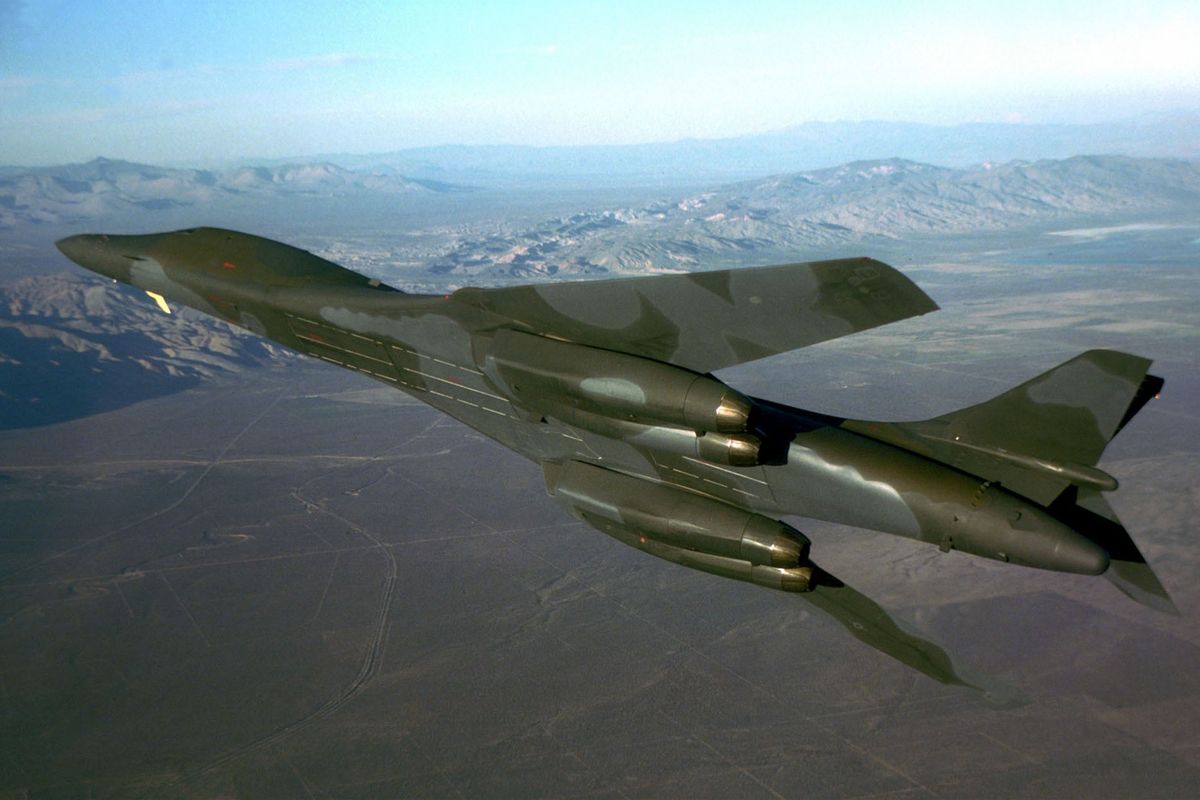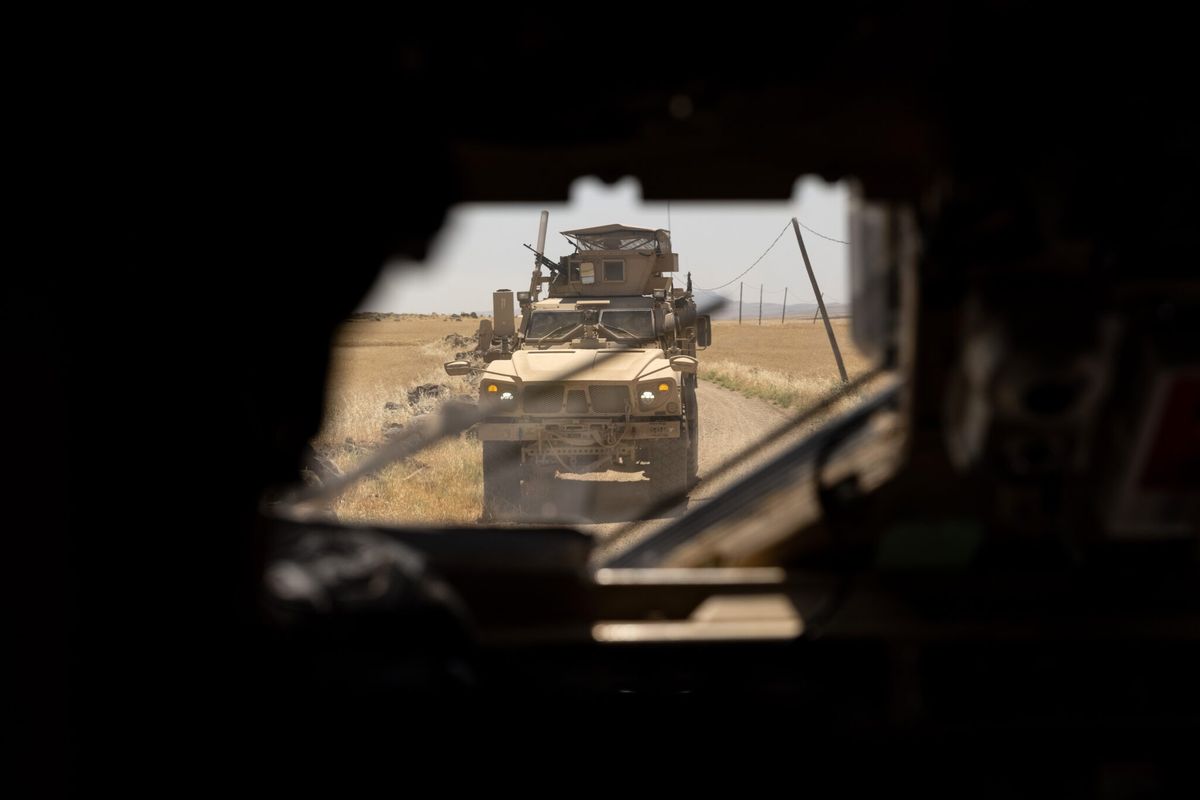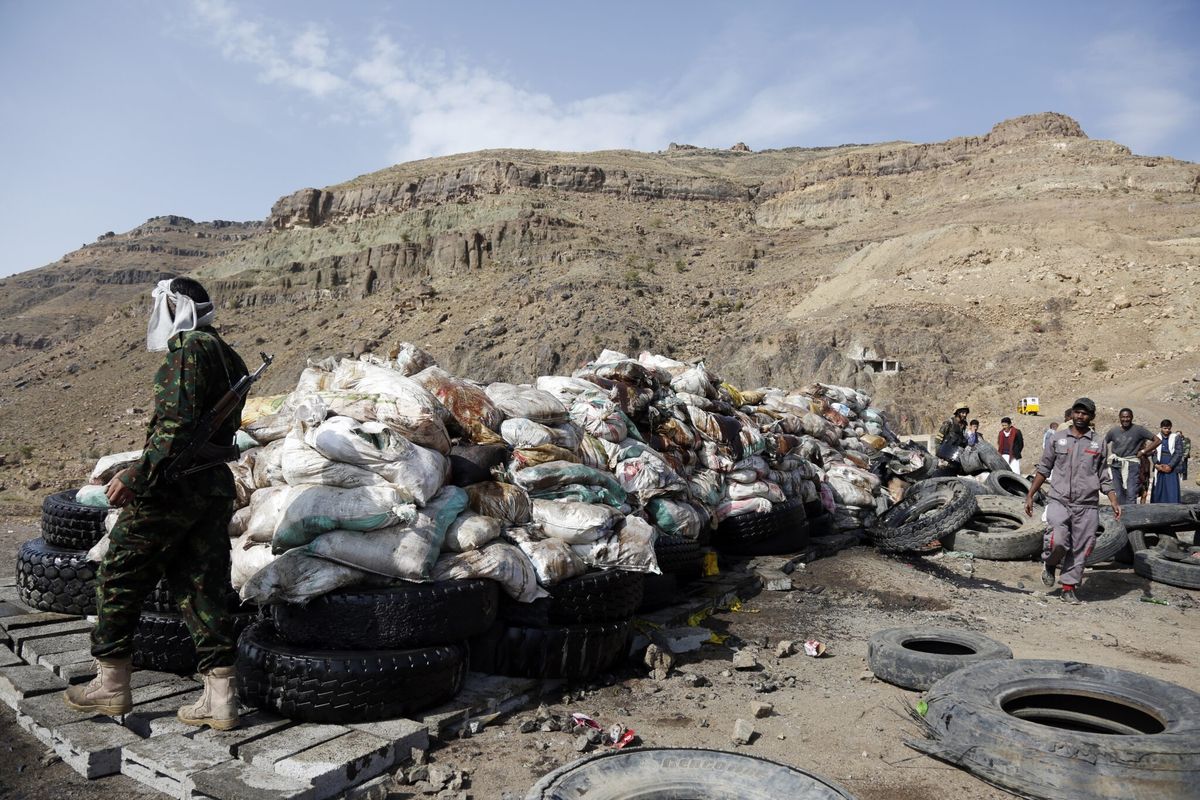Syrian opposition officials are meeting in the Kazakh capital of Astana to begin talks on a final peace agreement. Representatives from Russia and Turkey are expected to lead the negotiations with support from Iranian diplomats.
A ceasefire deal – brokered by Russia, Turkey and Iran – went into effect Dec. 30 and has largely held, despite reports of sporadic violence. The United States was not part of that deal, but Russian Foreign Minister Sergei Lavrov invited the new Trump administration to send representatives to the talks.
It is not yet clear if any U.S. officials will be sent to the talks starting Monday, but The Cipher Brief’s Leone Lakhani spoke to Antony Blinken, who served as the Deputy Secretary of State during the Obama Administration, to find out what position the U.S. can now take in Syria, and to discuss the other challenges facing the new administration.
The Cipher Brief: Secretary John Kerry engaged in months of diplomacy, but in the end, the ceasefire deal was brokered by Russia, Turkey and Iran. What role can the U.S. now play in Syria going forward?
Antony Blinken: First, the tragedy in Syria, the civil war in Syria, the inability to end it and stop the bloodshed, is a collective failure of the international community. It starts first and foremost, with the Syrians themselves, but also neighboring countries, powers that have fuelled the conflict, including Russia and Iran, and other great powers including the United States that haven’t been able to stop it.
Part of the challenge has been that this is an incredibly complex civil war. It’s not just two parties going at each other; it’s a multiplicity of parties with a multiplicity of interests, and often-conflicting interests. That’s not an excuse; that’s just a reality. What we know from history is this. Civil wars on average end in one of three ways. One side wins, but that hasn’t happened because as soon as one side has got the advantage the outside patrons of the other side have ratcheted up what they’re doing and rebalance things a little bit.
Second, the parties involved fight to exhaustion, except that on average we found that takes about 10 years. This is year six of the Syrian civil war, and when you have multiple parties involved, it is longer than 10 years. Finally, these things end by outside intervention, either military or political, or some combination of both.
What we thought is the best approach is to use our political influence to try to move the parties toward a ceasefire and toward a negotiation of political transition. Ultimately, if the Russians and Turks and others succeed in doing that, that would be a good thing.
But we continue to have very strong relationships with a number of critical actors in Syria. Their voices have to be heard at any kind of table that emerges for a transition in negotiations.
TCB: So was the U.S. involved in the ceasefire deal that was announced a few weeks ago?
AB: Well, involved to the extent that a tremendous amount of effort has gone into working this over the last many months. The actual ceasefire agreement that was reached, although it is under challenge almost every single day, was in the immediate reach of the Russians, the Turks, and other actors on the ground.
TCB: Going forward, you are saying the U.S.’s role will be in its influence over Syrian groups or its relationships with other Syrian groups?
AB: With those groups as well as with other countries in the region who also have a critical role to play, as influencers of, as guarantors of the ceasefire, and as countries that can help shape a political transition.
TCB: If we look at Iraq, what mistakes do you think were made on the U.S. diplomatic level, and how do you rectify those?
AB: I am very, very confident that we are going to defeat Da'esh militarily, and that will probably happen sooner rather than later. But for Da'esh, once defeated, to stay defeated, what really comes into play are political and economic accommodations so that all of the stakeholders in Iraq feel that their interests are looked out for by the state, and they don’t become so desperate that they look to extreme violent solutions. That’s what happened with the rise of Da'esh.
We have to be able to use our influence and our diplomacy to encourage the emergence of conditions that mitigate against, instead of facilitate and fuel the reemergence of, something like Da'esh. That means that Iraq has to figure ways to give every community a feeling that it has a stake in Iraq’s future, including, and especially, the Sunni community.
You’ve got about 30 million Sunnis who live between Baghdad and Damascus who feel, in many ways, disaffected. If ways are not found to address their concerns and their grievances, they are going to remain very susceptible to extremist appeals. That’s the big challenge going forward, in the first instance, for Iraqis. Ultimately, for Syrians when their civil war ends. But also for us and our diplomacy.
TCB: Beyond that, is there a strategy for the “day after” Mosul, in terms of refugees, for instance?
AB: Yes. In the most immediate term, absolutely. This has been one of the most carefully planned campaigns that I have ever seen. And not just carefully planned in terms of the military component, but in terms of, first of all, dealing with the immediate humanitarian concerns, particularly people displaced by the effort to retake Mosul.
We have in place, with the United Nations and various agencies, a very good system to make sure that people are cared for. That they are housed; that they are sheltered. Give them clothing, food, and medicine. Thus far, it’s dealt very effectively with those displaced by the effort to take Mosul.
Second, we have the resources in place to stabilize Mosul once it’s liberated, as a result of significant leadership by the United States in rallying other countries to contribute to a very significant UN fund, and then to have plans in place to make sure we can get the electricity turned on, that we can get water flowing, that we can get basic security in place.
TCB: What do you mean by that? Do you mean forces on the ground?
AB: No, with the resources that we can bring to bear – various agencies and nongovernmental groups, and the Iraqis themselves – we have plans in place to make sure that once the city is liberated, we’ll be able to get the lights turned on and the water flowing and sanitation and all the basics that would allow people to come home. We have learned from earlier parts of the campaign in Iraq.
Third, we have worked very hard in supporting Iraqi efforts to come up with the right governing schemes for Mosul once it is liberated to make sure that the right people are in place, to make sure that all different communities feel that they are represented once the military piece is completed.
TCB: At the end of the Obama administration, it seemed the world was in turmoil. In the Middle East we have the wars in Iraq and Syria. In Asia, we have the growing threat of North Korea. What do you see as the most pressing diplomatic challenges facing the new administration?
AB: First, the world that we inherited eight years ago was truly in flux and in turmoil. We had a global economy that was in freefall; we had two hot wars going on with almost 200,000 American troops engaged. We had al Qaeda regrouping in Afghanistan and Pakistan. We had Iran developing fissile material for nuclear weapons, and, of course, we had the growing threat of climate change that was not being addressed.
In each instance, we took that very difficult inheritance and we turned it around. We righted our economy in a dramatic fashion, averted a global depression, we wound down those two wars, built a sustainable counter-terrorism strategy that relies on building partnerships and creating real standards. In the process, we brought bin Laden to justice. We avoided war with Iran by imposing the most draconian international sanctions and, as a result, getting the nuclear agreement. Of course, in terms of Paris and climate, we’ve given the world a chance to really save the planet over the coming decades.
Going forward, the most immediate challenge, from the perspective of our security is to complete the fight against ISIL (ISIS), or Da'esh. That is very well in train. We’ve made significant progress in taking away its geographic space, its caliphate. That is, I think, the No. 1, most immediate job to continue.
TCB: There’s been so much focus on ISIS during this administration, and of course, with reason. Do you think the U.S. is paying enough attention to tackling the other extremist groups like al Qaeda? We’ve seen branches of al Qaeda expand in the Arabian Peninsula and Somalia, for instance.
AB: First, on Da'esh, that was the fastest-growing cancer that we had to deal with. Just two years, it was threatening Baghdad. It was threatening Erbil in the Kurdish area, and it was threatening to take over all of Syria.
Now, just a couple of years later we have a coalition of more than 68 countries and organizations dealing with Da'esh around over the world. We’ve taken back around 60 percent of the territory once held in Iraq and nearly 30 percent in Syria. We’re on the verge – by taking back Mosul in Iraq and eventually, Raqqa in Syria – of eliminating its geographic space, its self-declared caliphate in both of those countries. That’s going to have a tremendous impact on it practically speaking. It won’t have a place for foreign fighters to go to. It won’t have resources to exploit. Psychologically, it undermines its narrative. At the same time, other groups try to emerge or re-emerge, including al Qaeda. We see that, for example, in Syria where its branch – which used to be called al Nusra – is also a growing challenge, but it’s a challenge that we’re very much focused on.
With these new relationships – intelligence, police, information-sharing cooperation – more than 50 countries have signed agreements with us and a similar number are feeding information, for example, directly into Interpol on an almost immediate basis. All of that is making us more effective in dealing with international terrorism.
TCB: So you’re confident that there is a proper plan in place that will continue into the next administration?
AB: I can tell you that we have a comprehensive strategy that we’ve been implementing and it’s working. And we’re working very closely with the incoming administration to share what we’ve learned, to point to the remaining challenges, and to offer any support that we can to continue the efforts that we’ve made.
For more on our interview with Antony Blinken, you can listen to our special ‘15 Minutes’ podcast here.













